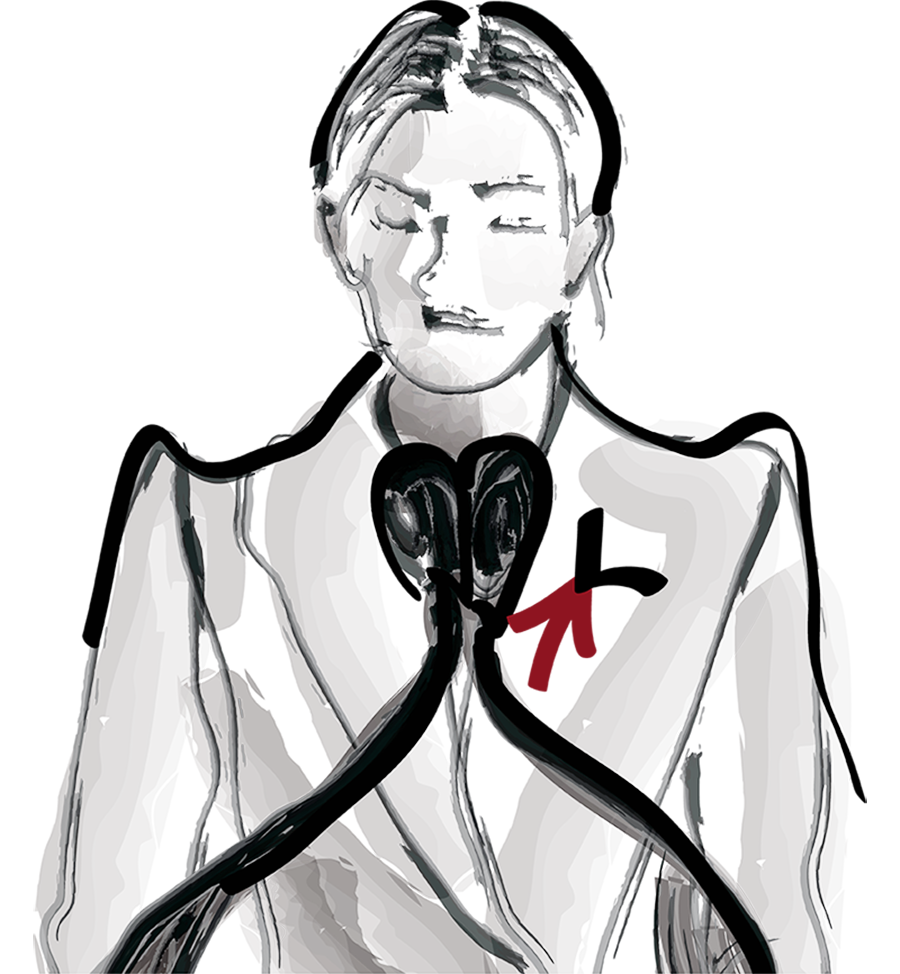At the launch of the UN gender equality campaign “HeForShe,” Goodwill Ambassador Emma Watson gave a speech about the necessity of a women’s rights movement. The quote that made the majority of headlines about the event, in one way or another, was the following: “fighting for women’s rights has too often become synonymous with man-hating. If there is one thing I know for certain, it is that this has to stop.”
Later in the same speech, Watson spoke about existing obstacles to women’s liberation: economic and educational deprivation, sexual objectification and coercion, reproductive restrictions, and so on. But if there is one thing, just one, that she knows for certain, it’s that the struggle for women’s rights should not involve hating men. In fact, Watson also expresses fears that currently, men are not “invited” or don’t “feel welcome” to participate in feminist activism.
But men are not simply a neutral collection of individuals, left out in the cold by exclusionary feminism. Men are a class of people who occupy the upper tier of a cultural gender hierarchy, and, like it or not, benefit from the subjugation of those below them. The definition of “men” is not a biological fact – not all men are assigned male gender at birth. It is a cultural fact. Men are men because they occupy a superior cultural position to women and people with alternate gender identities; that’s what they have in common. If power disparity between the genders did not exist, the categories “men” and “women” as we now understand them would be irrelevant.
The maintenance of this hierarchy is hard work. Women have to be prevented, continually, from claiming their equality – whether by use of violence, the threat of violence, or other forms of reprisal. As Watson mentions in her speech at the UN, feminists are often mocked as “unattractive,” and that’s not a coincidence. The social process at work behind that stereotype is also a kind of threat: you can choose either to try and dismantle oppressive structures or else be worthy of human affection. You can’t have both.
But beyond broad social norms, how does this hierarchy manifest itself in the personal lives of women? Why would any one woman hate all men? Maybe because her experience tells her to. According to statistics gathered in 2010, about one in five women in the US have been victims of rape. In the UK, two women a week are murdered by a parter or ex-partner. Worldwide, 30% of women who have been in a relationship have experienced intimate partner violence . These women do not spring from the earth, pre-victimised. The overwhelming majority of the people who hurt them are men. If two of every ten women in the US have experienced rape, how many men of every ten have committed it? How many men would it need to be, before distrust, or even hatred, would be legitimate?
Let’s get one final objection out of the way: hating men is not akin to misogyny or racism. It’s the difference between saying you hate the government and saying you hate the homeless. To hate a privileged class is not remotely morally equivalent to hatred of a suppressed and marginalised group, and men are structurally and individually prioritised, at every economic and cultural level. Men dominate tiny interpersonal interactions at parties and in classrooms, and they dominate national and international corporate and governmental power.
I don’t believe feminists must hate men, or should hate men. I don’t even personally hate men, most of the time. But feminists should certainly make room for women whose life experiences have taught them that men are not to be trusted. We should not expect every survivor of male brutality to welcome men with open arms into the one space they haven’t yet colonised; and we shouldn’t expect any one of us to feel comfortable with a movement that sets its agenda around making a dominant group feel at home.
Lots of men are undoubtedly good, conscientious people; I doubt those individuals are worried about being “invited” into feminism. They have a whole world to “feel welcome” in. At its best, feminism is a threat to men, and it should be. When resources are unfairly divided, justice always threatens those with more than a fair share. Many men understand and accept the necessity of change and sacrifice; they’re not the ones complaining about misandry. The people the feminist movement most needs to welcome are not the men who want to feel included: they are the women who have nowhere else to go.
Illustration: Naoise Dolan







